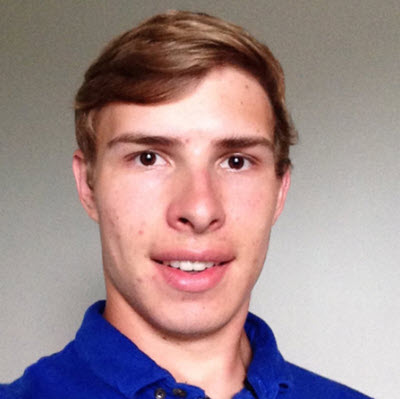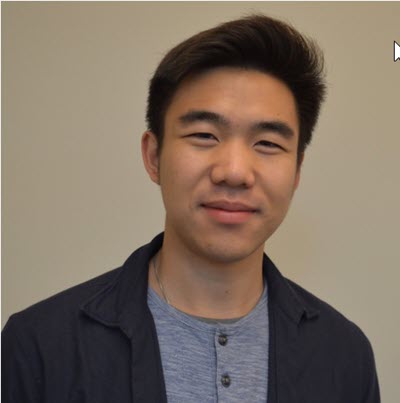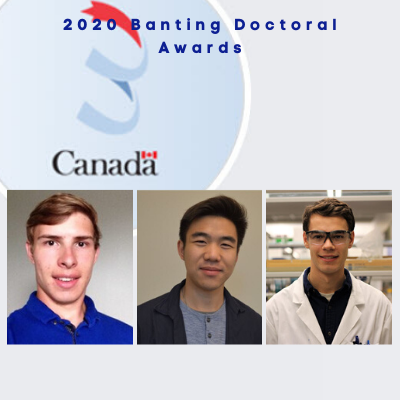The LSI is excited to announce that PhD candidates Peter Grin, Jerry Leung and James Saville have been named 2020 recipients of the Frederick Banting and Charles Best Canada Graduate Scholarship Doctoral Awards, which is granted to high-calibre doctoral students at Canadian institutions.
This support allows Banting scholars to fully concentrate on their doctoral studies, to seek out the best research mentors in their chosen fields and contribute to the Canadian research ecosystem during and beyond the tenure of their awards.
Meet our Banting scholars, who kindly agreed to respond to a series of questions about the work their awards will support.
What does it mean to you to be recognized with a Banting/Best Award?
 Peter Grin (Overall Lab)
Peter Grin (Overall Lab)
“Being recognized with the Banting & Best Award is a great honour and provides validation (in my case) for several years of hard work in research paying off! It also provides additional incentive and hope for pursuing the challenging and intellectually rewarding career path of becoming a scientist!”
 Jerry Leung (Cullis Lab)
Jerry Leung (Cullis Lab)
“It really is an honour to be a recipient of this award, as it not only recognizes my academic efforts but also those who have helped me get to where I am today. To them, thank you!”
 James Saville (Duong Lab)
James Saville (Duong Lab)
“Gratitude is the first word that comes to mind. I am very grateful for all the exceptional teaching, investment and support from my many many mentors over the years. There are far too many names to list here; however I would like to particularly thank my current supervisor Dr. Franck Duong and previous supervisor Dr. Jeremy Wulff for their support of my application. This award is therefore confirmation of all the incredible mentors I have encountered throughout my studies.”
What will the award allow you to do?
Peter Grin: “Naturally the stipend from this award will help to fund my cost of living in beautiful and expensive Vancouver. Additionally, the research allowance that comes with this award will financially support my attendance of international conferences to showcase my research, it will allow me additional freedom in pursuing my own ideas for my research, and importantly will allow me to upgrade my MacBook Pro which just had its 10th birthday!!!”
Jerry Leung: “This award will allow me to further pursue particular research questions that were to difficult to address previously, and will definitely help in opening the door to other great research opportunities and collaborations!”
James Saville: “This award will allow me to pursue more collaborative research, hopefully extending the impacts of my findings and providing me broader insights into my research. The ability to talk through one’s research with others in the field yields invaluable opportunities for unexpected insight.”
What research are you currently pursuing?
Peter Grin: “I am currently studying an important protein involved in regulating the levels of LDL-cholesterol (“bad cholesterol”) in the blood, and how this protein called PCSK9 is processed by a particular family of protease enzymes, as well as what are the functional biological effects of this processing on the development of heart disease or stroke. With the current COVID-19 pandemic, our lab has also transitioned to studying proteases made by the novel coronavirus (SARS-CoV-2), and I am becoming increasingly involved in our efforts to unravel some of the biology that our lab has discovered related to these viral SARS-CoV-2 proteases.”
Jerry Leung: “Currently I am pursuing the use of lipid nanoparticles to modify and enhance platelet function as a novel cell therapy, which has immediate applications towards the treatment of particular blood disorders or related conditions.”
James Saville: “My research concerns understanding the fundamentals of multidrug-resistant organisms (colloquially “superbugs”) and how to more specifically eliminate them. I seek to exploit the burgeoning field of antibody development to produce highly specific antibody variants against the outer surface of these bacteria. Increasing the specificity of the therapeutics we use to treat multidrug-resistant organisms will minimize the chances of evolving new, more resistant strains.”
What impact do you hope to have on your field and on the world at large through this work?
Peter Grin: “I hope to advance understanding of the key biological effects of so-called post-translational processing carried out by proteases on important proteins in multiple disease contexts. I also hope that my work in studying LDL-cholesterol regulation by proteolytically processed PCSK9 will lead to new avenues of drug development to help manage cholesterol levels for the millions of Canadians at risk for heart disease and stroke.”
Jerry Leung: “Through this work I hope to not only develop a useful research tool but also contribute to the generation of more effective blood transfusion products for hemorrhage control and the treatment of other diseases which platelets might modulate. If this can positively impact the lives of those in need, then that would certainly be the most rewarding!”
James Saville: “The successful development of new methods to generate highly specific and high affinity antibodies against these bacteria will have implications across different fields of biochemistry. Therefore seeking out collaborations to see these methods employed as widely as possible will be key to realize the full potential of this work.”
